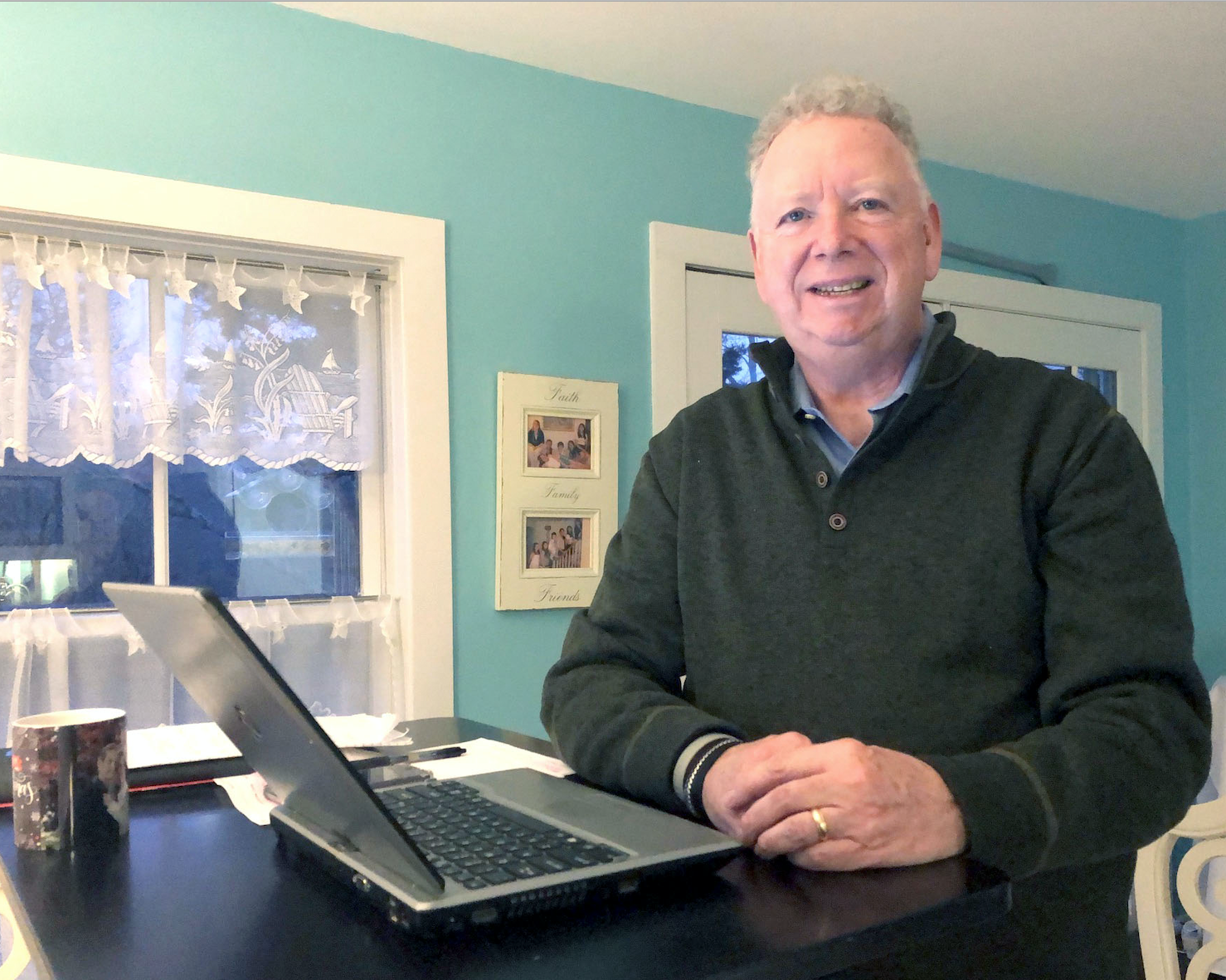Every weekday, a different HopeHealth medical doctor gets to be Doc of the Day.
The physician in this rotating role advises admission nurses who evaluate patients for hospice services. The Doc of the Day also verifies a patient’s eligibility for hospice, helps admission nurses address urgent clinical concerns and recommends any additional medications necessary to manage symptoms.
Doc of the Day makes Dr. J. Russell Corcoran think of Otis Redding’s 1968 hit “(Sittin’ On) The Dock of the Bay.”
“Someday I’m going to take that song and add words to it,” Russ says.
If he did, a few of his physician colleagues might not recognize the melody right away or even Redding’s name. Russ, is one of a handful of HopeHealth physicians nearing traditional retirement age.
“Every once in a while, I threaten to retire and my team says, ‘No, you can’t do that,’” he says, laughing.
A day to honor contributions of physicians
March 30 is National Doctors’ Day, a time to celebrate the contributions physicians make to patients, families and communities. The first Doctors’ Day was observed in 1933 after the wife of a Georgia doctor came up with the idea, choosing the date in 1842 when ether was first used as an anesthetic for the first time in surgery.
This important date in medical history ushered in a new age in preventing pain and suffering. It’s also particularly meaningful for experienced doctors like Russ, who started working in the field of hospice and palliative care in the 1990s. As we pause to recognize doctors, it’s important to note they’re part of a team that includes nurses, aides, social workers, therapists, and chaplains.
“Hospice and palliative care are attractive because of the teamwork,” Russ says.
“There’s less distance between everybody [in hospice]. Everybody works together better. Is that true throughout medicine? I don’t know. I think hospice is one of the places where it works best. We do a great job of working as a team.”
Doctors now give recommendations instead of orders. Nurses call Russ by his first name. He spends a lot of time listening when the team is talking about patients. Above all, Russ is a collaborator on a care team focused on keeping patients comfortable, managing their symptoms and meeting them and their families where they are.
“In what we do, we need support and I think my job is not just to take care of the patients,” he says. “My job is helping to take care of the team. I am lucky where I work.”
Experience, leadership, mentorship
Last year, approximately 45% of active U.S. physicians were age 55 and older, up from 44% in 2017 and nearly 38% in 2007, according to the Association of American Medical Colleges. The rise of physicians approaching retirement age is among the factors behind a projected physician shortage outside of the Northeast.
Russ is an internist and geriatrician who lives in Wakefield and has a medical acupuncture practice in Narragansett. He spent four years as chief medical officer at South County Hospital before joining HopeHealth in 2018. He serves as medical director of the HopeHealth Hospice & Palliative Care home care team serving patients in the southern half of Rhode Island.
Many experienced physicians like Russ come from leadership roles in private practices, hospitals and academic institutions. They serve as a valuable resource for younger, less experienced physicians.
Russ recovered from COVID-19 after being treated last December with a monoclonal antibodies infusion. He started to feel achy and fatigued the Sunday after Thanksgiving and tested positive for the coronavirus. He felt worse with each passing day and told his doctor about monoclonal antibodies. His doctor did some research and within an hour had Russ scheduled for a one-hour infusion of Eli Lilly’s bamlanivimab later that week.
He started feeling better two days after the infusion and was able to resume remote work three days later.
COVID-19: A doctor and a patient
His experience gave Russ perspective on the fear and uncertainty patients face and the opportunity to take a lead role in educating other doctors about monoclonal antibodies and how to get the treatment for their patients. Russ talked about his treatment on separate Zoom pandemic updates organized by the Rhode Island Department of Health over the winter. One call was attended by over 500 health care providers and the other call for nursing home administrators had 87 participants.
Russ feels lucky to have made a full recovery. He was finally able to get the COVID-19 vaccine at the beginning of March.
The lyrics to the “(Sittin on) The Dock of the Bay” lament the circumstances of the present. But the pandemic will eventually ebb like the tide. Each day, Russ and his colleagues are watching the positive cases roll away.
On March 30, Doctors’ Day, Russ finally got his second shot of the vaccine in the morning. His schedule also included a haircut as life crawled ever so slowly back to normal.
Russ knows a new generation of doctors will take over in the years ahead. They include three fellows chosen for clinical training at HopeHealth this year from over 80 applicants to the Brown Hospice and Palliative Medicine Fellowship. HopeHealth trains the next generation of physicians as the major teaching affiliate for hospice and palliative medicine at the Warren Alpert Medical School of Brown University.
He also knows their education emphasizes teamwork in preparation for a career in medicine far more than when he entered the profession.
“Those are the people we’re going to depend on in the future,” he says.

